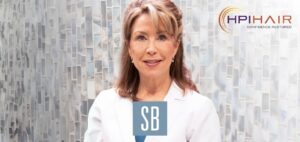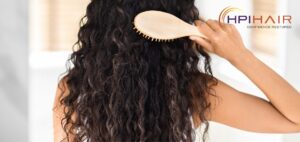Expert solutions for women’s hair loss. Book a consultation now.
Every woman experiences changes as she ages, and for some, one of the most frustrating changes can be hair loss. While it’s commonly associated with men, hair loss can also affect women, particularly as they reach later stages of life. Understanding the causes of hair loss in older women is crucial for addressing the issue effectively. In this comprehensive guide, we will delve into the various factors that contribute to hair loss in older women, offering valuable insights for those seeking to combat this condition.
Hormonal Changes
Hormonal changes play a significant role in hair loss among older women. As women age, hormonal imbalances, particularly changes in estrogen and progesterone levels, can impact hair growth cycles. This fluctuation in hormone levels can lead to a condition known as androgenetic alopecia, which is a common cause of hair loss in older women. Additionally, the onset of menopause can contribute to hormonal shifts, further exacerbating hair loss.
Nutritional Deficiencies
Nutritional deficiencies can also contribute to hair loss in older women. As individuals age, they may experience challenges in adequately absorbing essential nutrients from their diet, leading to deficiencies in vitamins and minerals crucial for maintaining healthy hair. For instance, inadequate intake of iron, vitamin D, and B vitamins can directly impact hair health and contribute to hair thinning and loss.
Medical Conditions
Several medical conditions can contribute to hair loss in older women. Conditions such as thyroid disorders, autoimmune diseases, and scalp infections can disrupt the normal hair growth cycle, leading to excessive shedding and thinning of the hair. It’s essential for women experiencing hair loss to consult with a medical professional to rule out any underlying health issues that may be contributing to the condition.
Stress and Emotional Well-Being
The emotional well-being of older women can also have an impact on hair health. Chronic stress, anxiety, and emotional turmoil can trigger hair loss or exacerbate existing conditions. As women age, managing stress and prioritizing mental well-being becomes increasingly important for maintaining healthy hair and overall wellness.
Genetic Predisposition
Genetics play a crucial role in determining a woman’s susceptibility to hair loss. If there is a family history of hair loss, particularly among older female relatives, it increases the likelihood that an individual will also experience hair thinning and balding as they age. Understanding one’s genetic predisposition to hair loss can help in formulating effective strategies for prevention and treatment.
Treatment Options
Addressing hair loss in older women often requires a multi-faceted approach. Depending on the underlying cause, treatment options may include:
– Hormone replacement therapy to address hormonal imbalances
– Nutritional supplements to replenish deficiencies
– Prescription medications to stimulate hair growth
– Low-level laser therapy to promote hair regrowth
– Platelet-rich plasma (PRP) treatment to rejuvenate hair follicles
– Scalp treatments to address underlying scalp conditions
– Hair transplantation for more severe cases of hair loss
It’s crucial for older women experiencing hair loss to seek professional guidance from a qualified medical practitioner to determine the most suitable treatment plan tailored to their specific needs.
The essence
Acknowledging the causes of hair loss in older women is the first step toward effectively addressing this common concern. cknowledging the various factors that contribute to hair loss, women can proactively seek appropriate treatments and preventive measures. With the right knowledge and support, older women can embrace effective solutions to maintain healthy, voluminous hair well into their later years.









